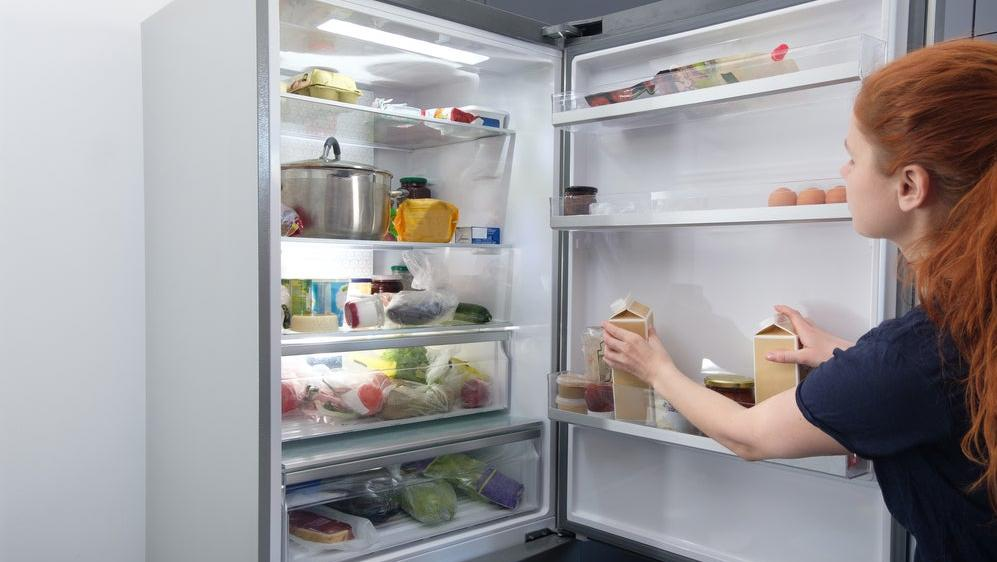Keep These Items Off Your Refrigerator Door
Ever just stare inside your open fridge? Yeah, you might want to stop that.
Nestled in my refrigerator door are all my dressings and sauces, sticks of butter, a carton of almond milk, a bottle of coffee creamer, and the odd jar too tall to fit on a shelf within the fridge. The fridge door is where I believed all these items belonged, but once again the internet has shown me that I am so very naive in my kitchen knowledge.
For the sake of keeping your food fresh and avoiding kitchen catastrophe, take note of these items you should keep far away from the refrigerator door.
Milk belongs on the fridge shelf
From a functional point of view, storing a jug of milk (whether cow's milk or dairy-free) on the refrigerator door might seem like the best option. You likely reach for that jug every day to pair with your morning cereal or an afternoon baking adventure, so it just makes sense that you keep it immediately accessible, right? Wrong, says Taste of Home (and multiple other sources).
Milk is meant to be stored at a constant cool temperature, so keeping it in the door where it will be exposed to the warm air of your kitchen every time you reach in will cause dairy to spoil faster. Once you've opened your milk, especially non-dairy milk, you've only got a certain number of days to use it before it loses freshness. Opening and closing the fridge while storing it on the door will only decrease that time.
Salad dressings and condiments are fine—but proceed with caution
Fortunately for me, and my stomach, there's actually no harm in storing salad dressing and other condiments on the refrigerator door. They can typically withstand the temperature fluctuations of that placement just fine. However, there are some potential issues that might make you rethink storing these items on the door.
Bottles of salad dressings, ketchup, mustard, mayonnaise, soy sauce, or salsa can all take up a fair amount of space when crammed all together in one bin. Make sure your bottles of condiments and sauces aren't packed tightly together, because the little guardrail that forms the shelf on your fridge door isn't the sturdiest thing in the world. If you're clumsy enough like me, you might accidentally knock that bin right off the door and end up with a mess on your kitchen floor.
Eating Well explains that salad dressings and condiments can be safely stored on the refrigerator door, if you prefer, because they have a longer shelf life and can handle the frequent change in temperature. But these bottles could also spend time in the pantry, if you choose. Think about when you dine out and usually see a bottle of ketchup sitting on the table along with the salt and pepper shakers. That bottle isn't refrigerated most of the day and it's fine.
No eggs in the fridge door
Some refrigerators actually have a built-in egg rack on the door, but whatever engineer made that design should have consulted some food experts. Eggs, like milk, need to be stored at a consistent temperature, and the rush of warm air coming through the door just isn't conducive to maintaining that required temperature. Instead, you should store your eggs on the middle shelf of your refrigerator where you can reach for them just as easily but keep them cold, too.
